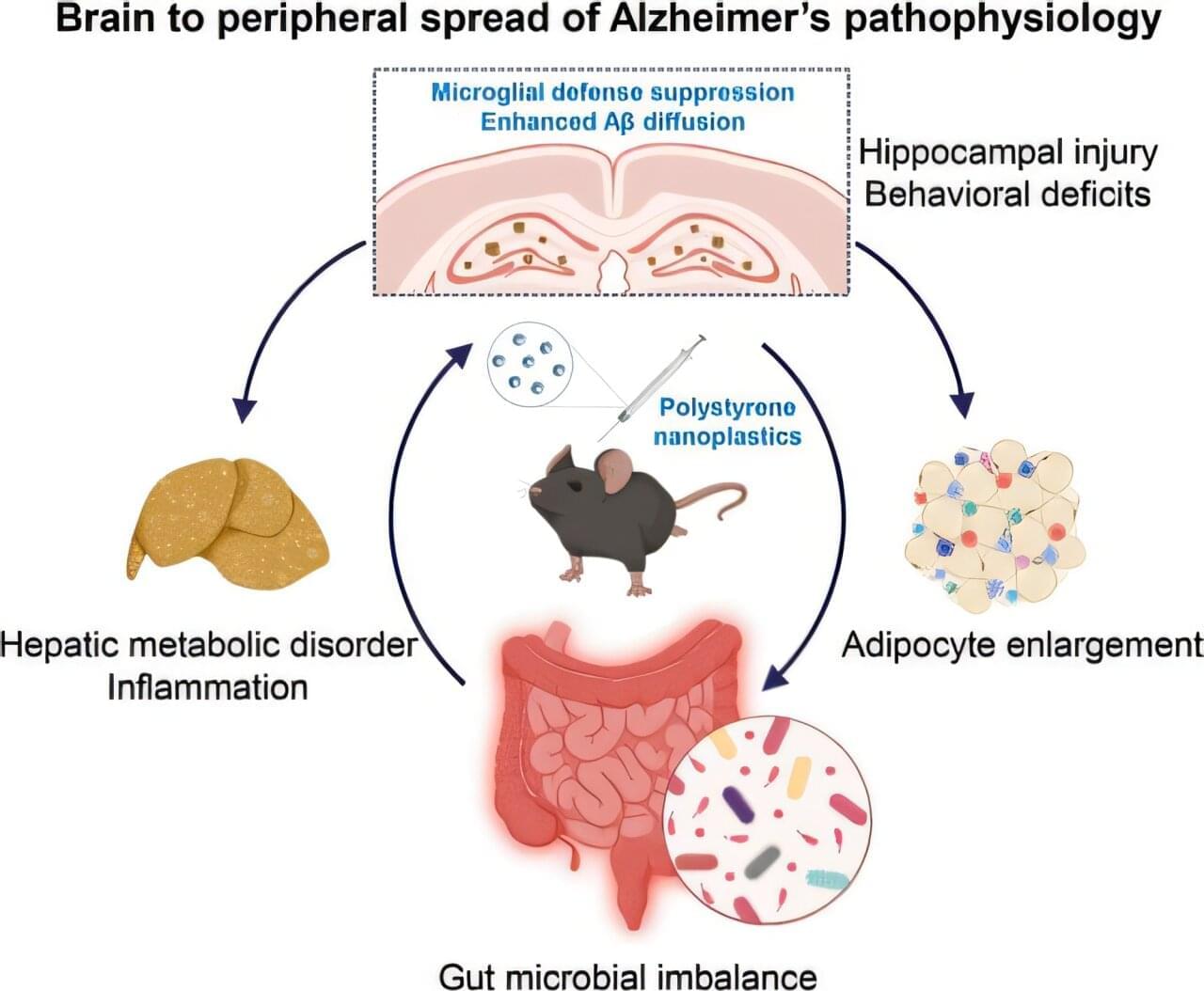A new preclinical study has found exposure to nanoplastics may contribute to the rapid progression of Alzheimer’s disease and subsequent spread from the brain to other key organs such as the liver, heart and gut.
The research, “Cerebral to Systemic Representations of Alzheimer’s Pathogenesis Stimulated by Polystyrene Nanoplastics,” is published in the journal Environment & Health.
The study, co-led by Monash University and South China University of Technology, investigated how environmental-level polystyrene nanoplastic exposure influences the progression of Alzheimer’s disease from the brain to other parts of the body. Studies in mice revealed that nanoplastic-induced neurological damage is not confined within the brain, but expands systemically through the gut–liver–brain axis.

Exposure to heavy metals from many sources too numerous to list here are far more likely the cause of neurodegenerative diseases.